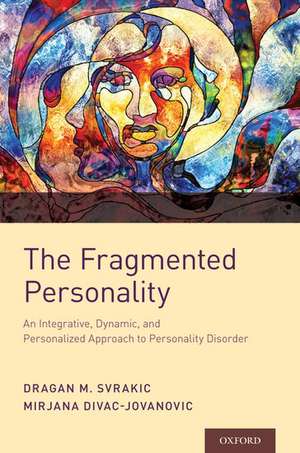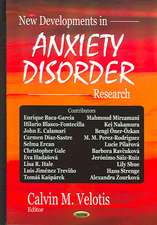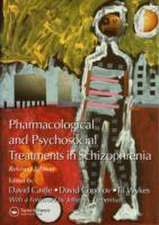The Fragmented Personality: An Integrative, Dynamic, and Personalized Approach to Personality Disorder
Autor Dragan M. Svrakic, Mirjana Divac Jovanovicen Limba Engleză Paperback – 3 ian 2019
Preț: 413.93 lei
Preț vechi: 538.52 lei
-23% Nou
Puncte Express: 621
Preț estimativ în valută:
79.22€ • 82.40$ • 65.40£
79.22€ • 82.40$ • 65.40£
Carte tipărită la comandă
Livrare economică 04-10 aprilie
Preluare comenzi: 021 569.72.76
Specificații
ISBN-13: 9780190884574
ISBN-10: 0190884576
Pagini: 360
Dimensiuni: 231 x 155 x 20 mm
Greutate: 0.52 kg
Editura: Oxford University Press
Colecția OUP USA
Locul publicării:New York, United States
ISBN-10: 0190884576
Pagini: 360
Dimensiuni: 231 x 155 x 20 mm
Greutate: 0.52 kg
Editura: Oxford University Press
Colecția OUP USA
Locul publicării:New York, United States
Notă biografică
Dragan M. Svrakic, MD, PhD, Professor of Psychiatry, Washington University School of Medicine, St. Louis, MissouriMirjana Divac-Jovanovic, PhD, Associate Professor of Clinical Psychology, Singidunum University, Belgrade, Serbia



















